
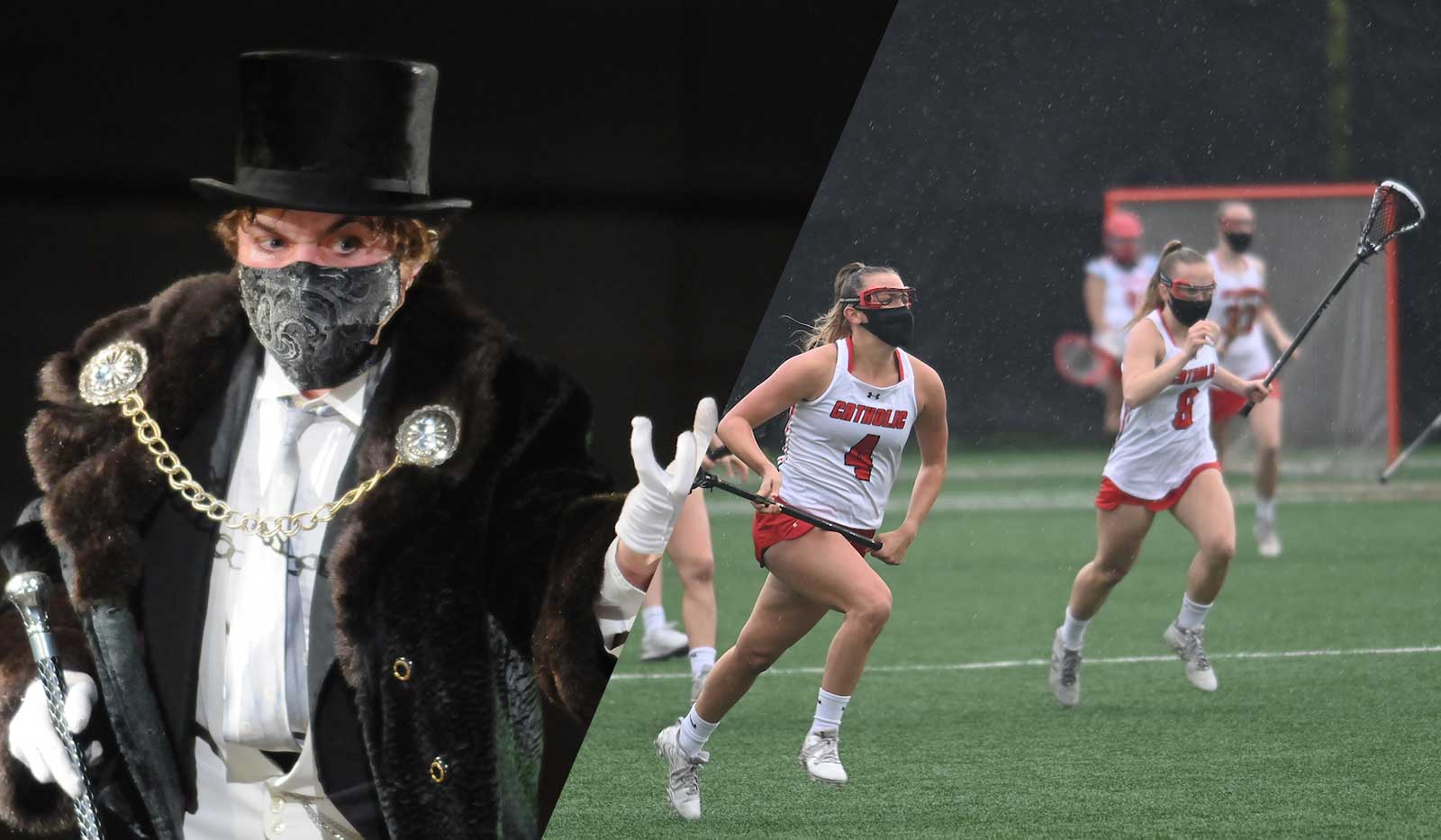
When Patrick Tuite, associate professor of drama, sat down in Hartke Theatre in March to watch a dress rehearsal of Hamlet, he got emotional.
“I had tears in my eyes. It had been nearly a year since I’d seen live theater,” said Tuite, who is also associate dean of graduate studies and production for the Rome School of Music, Drama, and Art.
The COVID-19 pandemic left theaters across the country dark. In March 2020, students in the Rome School had to leave not just the classroom, but their studios and stages. When most students returned to campus nearly a year later in the spring 2021 semester, Tuite led the effort to get them back to live performances. It would mean regular testing and contact tracing, no audiences (the productions were filmed for online viewing), masking at all times (even while singing), social distancing, and the flexibility to suspend and reschedule rehearsals in the event of a positive test or reports of exposure among the cast and crew.
With the first pitch in February, Head Baseball Coach Ross Natoli says he felt a sigh of relief. The Cardinals were at Drew University for a doubleheader. “It was a strike, fouled off. But we came out swinging,” says Natoli. “We were more than grateful to have a season this spring. It had been nearly a year since our season was cut short in March 2020. We were lucky enough to get 15 games in before that happened. We had just won five straight, and we were playing our best baseball, with realistic sights on another championship,” says Natoli, who has coached the team for 36 years with five Landmark Conference championships under his belt.
The Department of Athletics had the challenge of not just following COVID safety protocols, but of juggling three seasons of sports simultaneously. Fall sports, cancelled the previous semester due to the pandemic, were moved to the spring semester. Following CDC and NCAA protocols, the department created an action team that reviewed game scheduling, operational needs, changing health guidelines, and protocols such as rigorous testing, masking, and distancing to keep athletes safe.
For the baseball team, that meant scheduling multiple practice times to allow for smaller groups on the field and playing all games as double headers on weekends, making for less travel and exposure.
During the spring semester, the University’s performing artists and athletes found they were navigating similar challenges as both groups of students were determined to return to their stages, fields, courts, and pools.
Like the actors, the athletes would have no fans cheering them on. The actors and athletes also found that performing and competing in masks brought challenges. “I actually didn’t mind the mask in February and March when you’ve got cold wind blowing at you,” says first baseman Nolan Lundholm, B.A. 2020. “But by April as the days got warmer, it wasn’t so pleasant.”
Carianmax Benitez, a rising senior musical theater major, had a lead role in the spring production of Urinetown. The vocals were challenging. She would need to “belt.”
“Our masks had little cages inside them, which basically kept the mask out of your mouth when you’re singing,” explains Benitez. “I had to hit a high C for this role and I had never done that before, which was challenging enough without having to worry about that. With the masks, we also had to over-enunciate our lines and lyrics.”
The mask-wearing was but one prong of the COVID protocol program actors and athletes had to adhere to. (see sidebar) For the coaches, faculty, and staff responsible for them, it was the least of their worries.
“Back in January and February things were still pretty bad in the country. Most people were not yet vaccinated,” says Tuite. “We all felt the incredible weight that came with the responsibility to keep our students safe,”
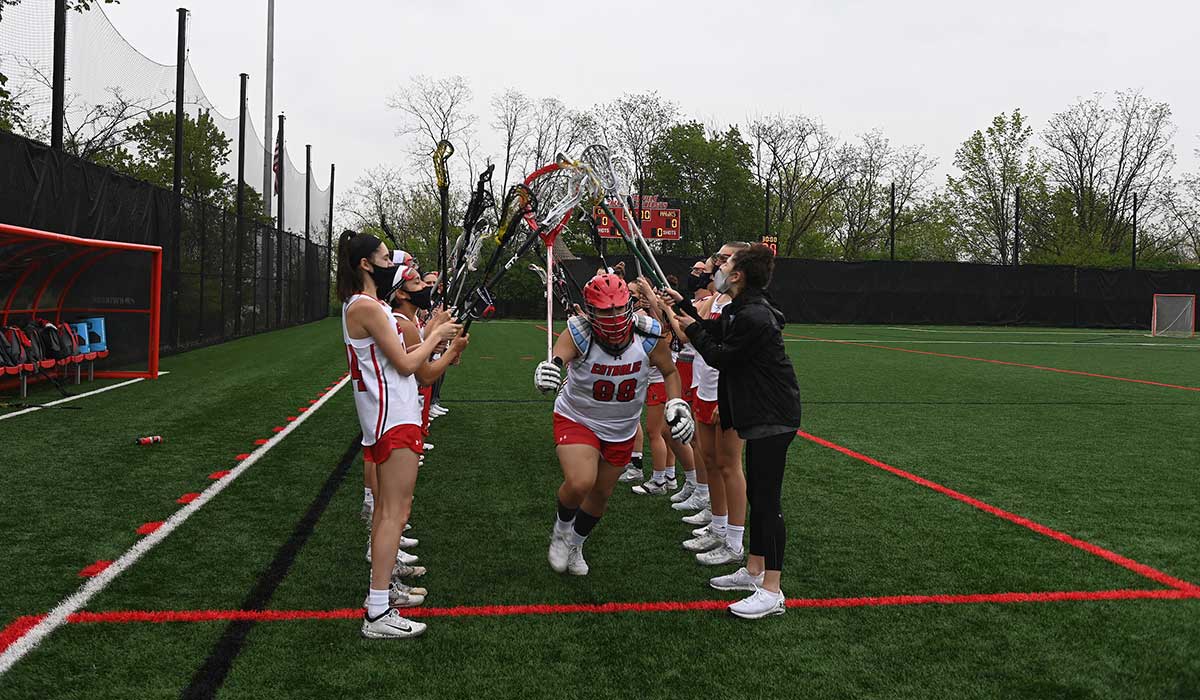
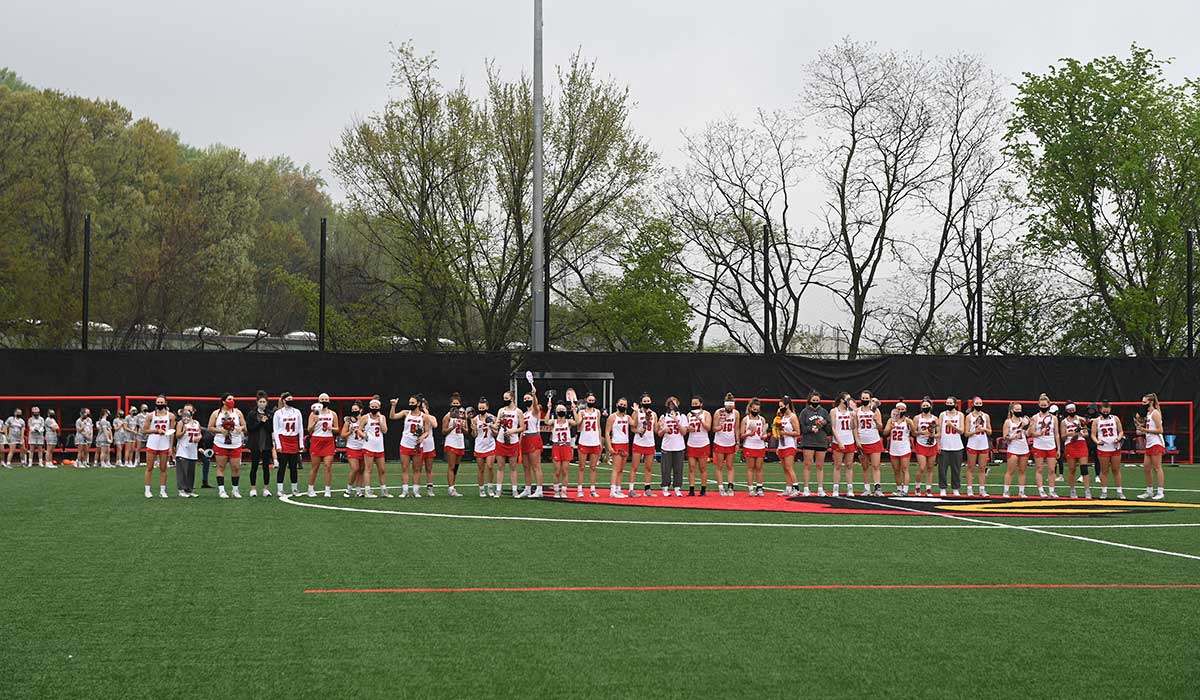
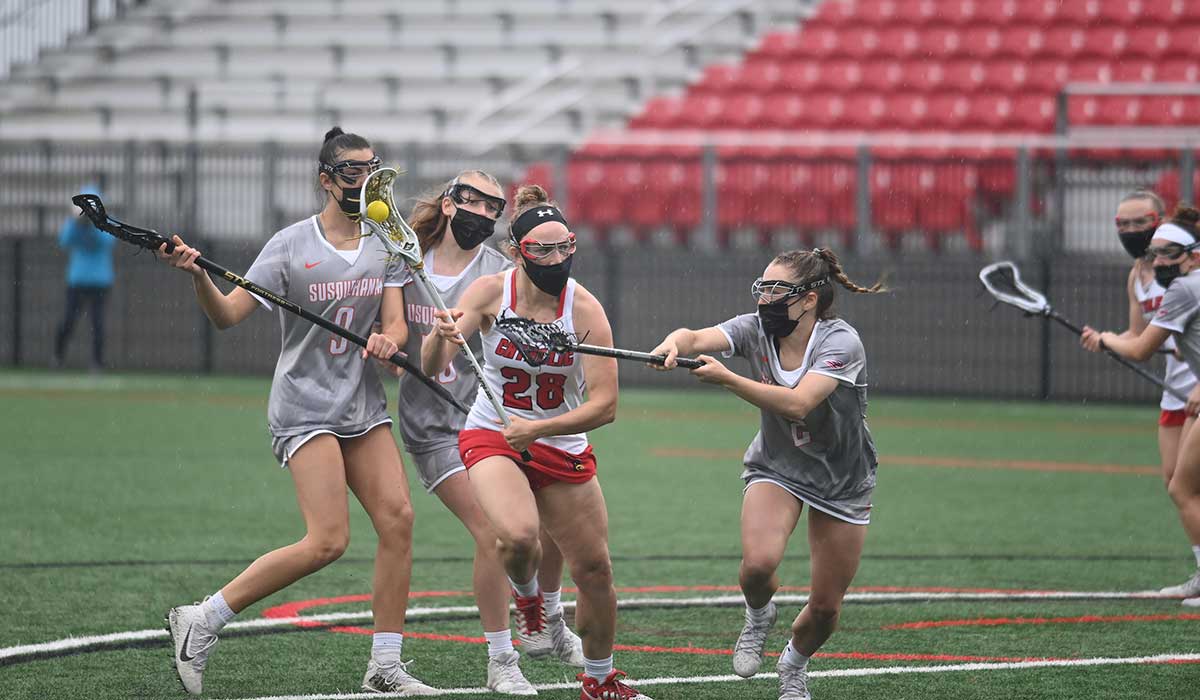
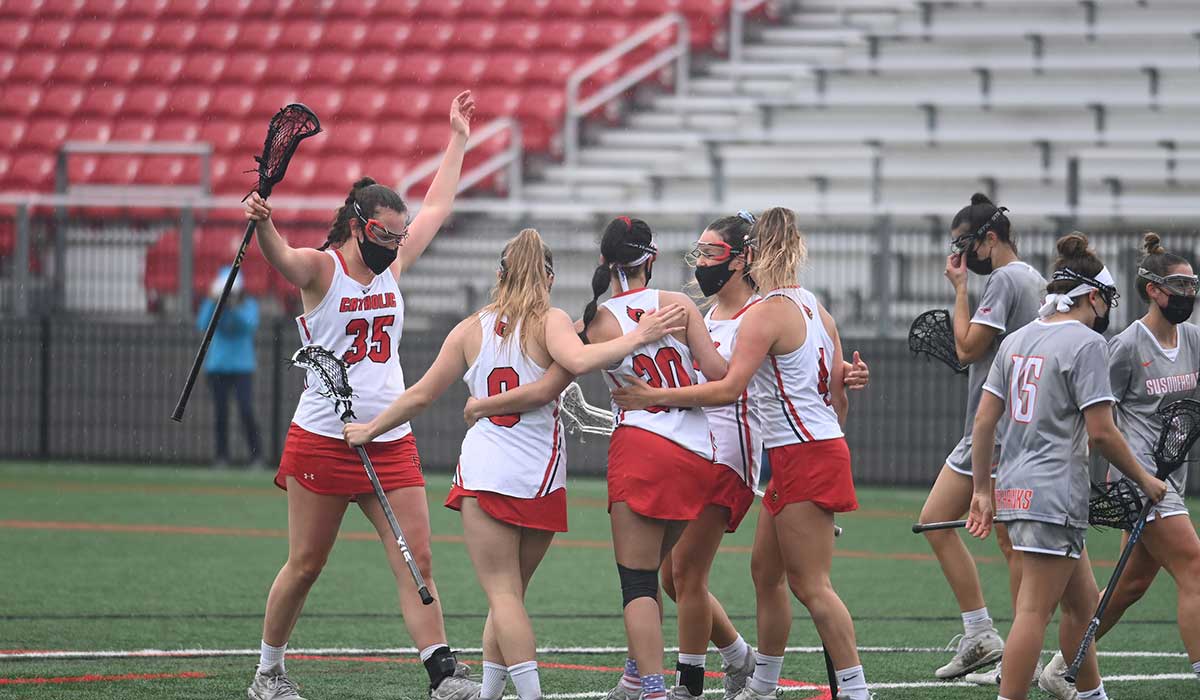
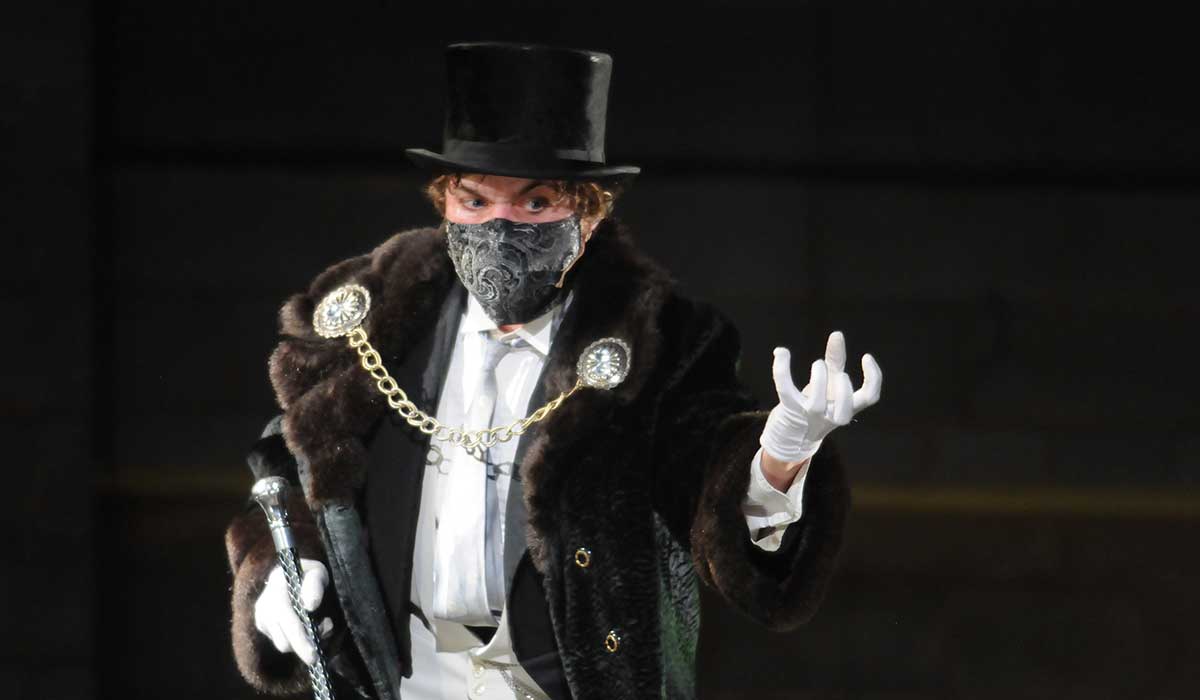
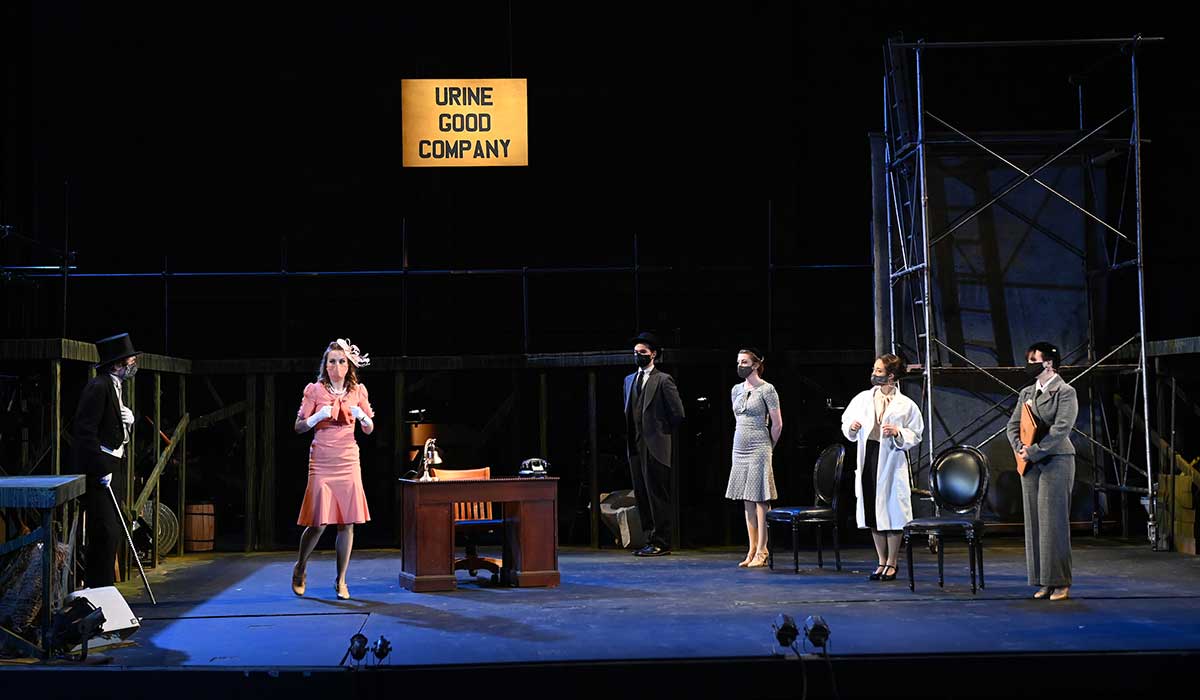
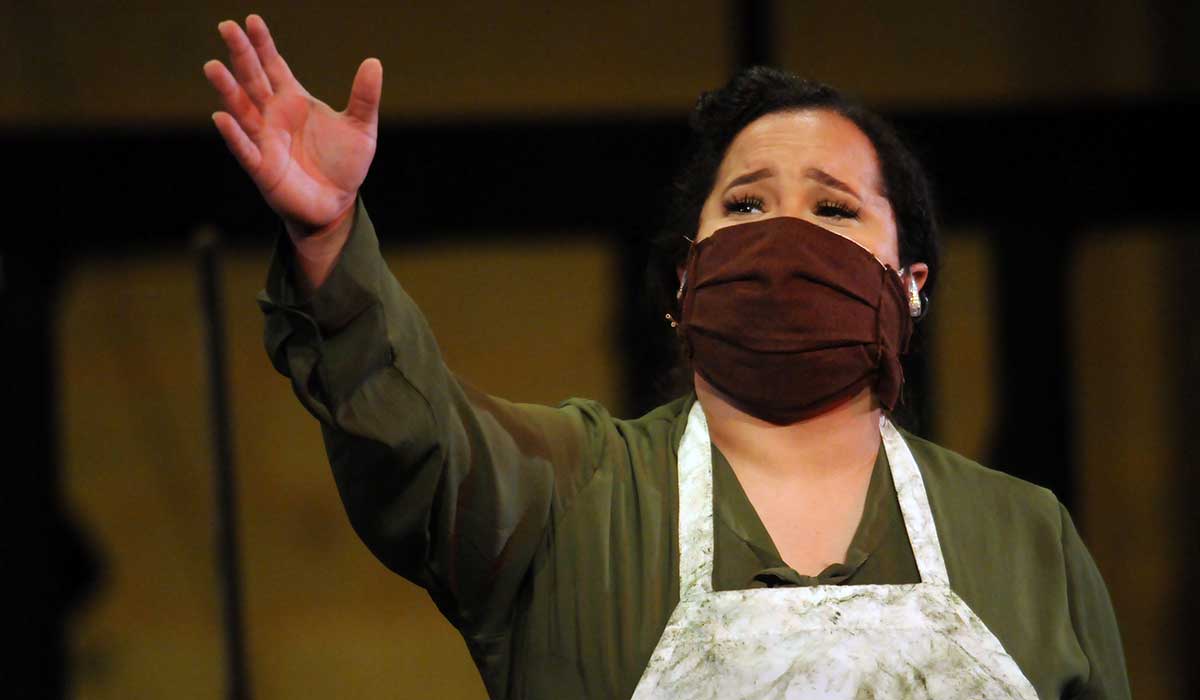
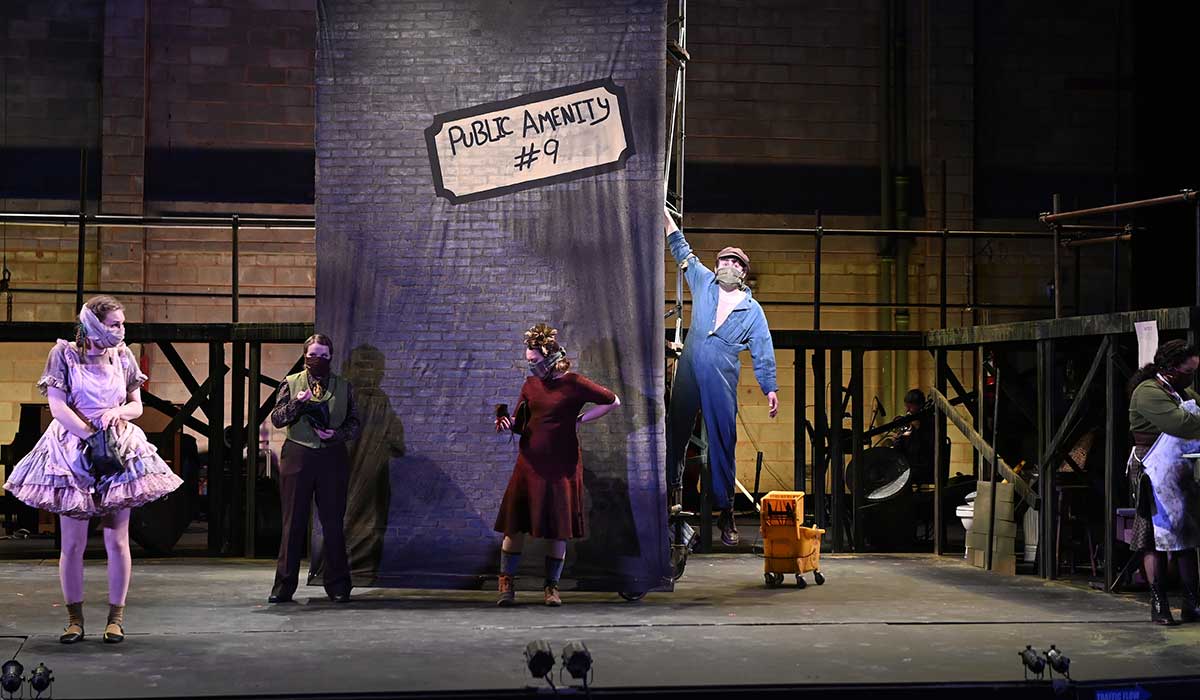
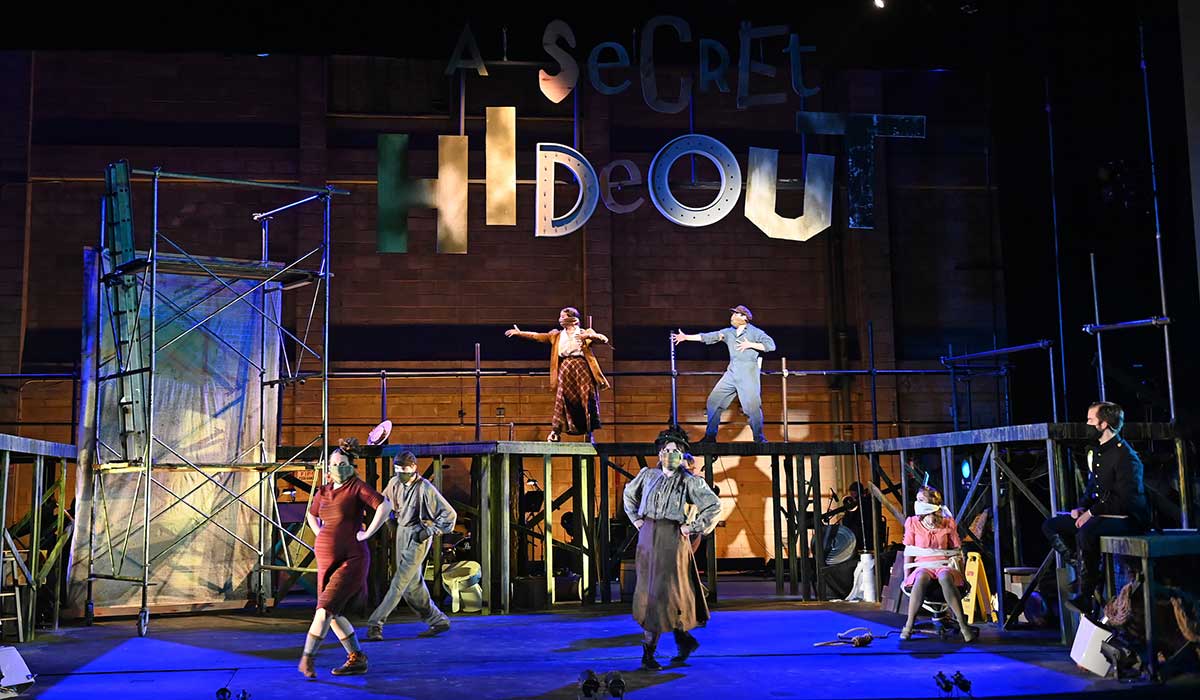
In the spring 2020 semester, Benitez, then a sophomore, was set to appear in Little Shop of Horrors in what she calls a dream role. “I was cast as Crystal, a sassy, brassy woman,” she says. The musical, produced by the University’s Center Stage student organization, was set to open when the students returned from spring break in March 2020. Then the pandemic took hold in the United States, and the rest is now history.
“We had worked so hard and were so excited for opening night, it was sad when we got the news we would not be returning to campus,” recalls Benitez. “We made the best of it and recorded several songs from the show to share on social media.”
When the Rome School announced a return to in-person performances in the spring 2021 semester, Benitz auditioned for another dream role, Penelope Pennywise in the mainstage production of Urinetown. It was the most vocally demanding role she had ever attempted. The pre-recorded audition was well received. By the time she got the callback, she was sick with COVID and in isolation. “I had a zoom call back for this role and remember somehow hitting all the notes. I was so sick with a high fever, though, that that’s all I remember,” she says. “I was just so grateful that the Rome School was making it possible for us to perform, that I would have done anything to try for that part.”
Lundholm experienced similar disappointment in March 2020. He had hopes of another baseball championship before the season was cancelled. As he acclimated to online classes at his off-campus house on Monroe Street, the student-athlete was grateful for a few rainy days. “My teammates and I rationalized that we wouldn’t have been playing baseball anyway. It helped us get through the first week without baseball,” he says.
When the NCAA announced an additional year of eligibility for all spring sport athletes, Lundholm, who was about to graduate with a degree in marketing, decided to take advantage of the opportunity to play one more season of the sport he loves. He applied to the University’s master’s in management program.
“I look back now and I wouldn’t change anything,” says Lundholm. ”I’m grateful for my time at Catholic and for the extra season, as strange as it’s been. And I’m grateful to be in the master’s program. I’m not sure where my career will take me. But whatever I do, I will always be involved in baseball somehow and a management graduate degree will be an asset.”
University actors and athletes who made their way through uncharted territory to pursue their passion for performing and competing found much in common. In the end, perhaps the most important shared experience was gratitude.